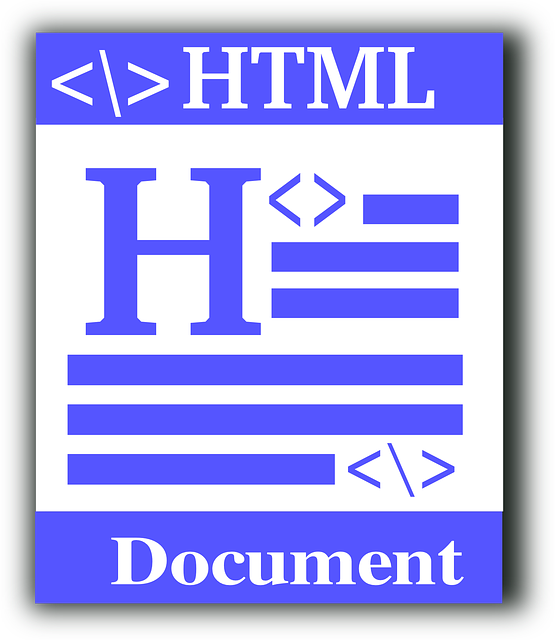Schema Markup SEO is a powerful tool for enhancing search engine optimization (SEO) by providing structured data that helps search engines better understand web page content and user intent. It involves adding semantic tags, using Microdata or JSON-LD, to HTML code to describe elements like products, events, or articles. This process improves indexing and potentially boosts rankings by enabling search engines to extract crucial information about entities like businesses, people, locations, and products. Schema Markup SEO leverages Schema.org to infuse meaning into web content, resulting in visually enhanced and informative displays in search results that capture users' attention. By implementing accurate structured data across a website's content, marketers can significantly improve rich result visibility, driving more traffic and engagement.
In today’s digital landscape, effective content structuring is paramount for search engine optimization (SEO). Schema.org emerges as a powerful tool, enabling businesses to enhance their online visibility through structured data. This article delves into the intricacies of Schema Markup SEO, exploring its role in boosting search engine understanding and driving rich results. We provide a comprehensive guide on implementation, best practices, and measurement techniques, ensuring you harness the full potential of Schema.org for optimal online success.
- Understanding Schema Markup and Its Role in SEO
- The Power of Structured Data for Search Engines
- Implementing Schema.org: A Step-by-Step Guide
- Enhancing Search Engine Visibility with Rich Results
- Best Practices for Optimal Schema Markup Usage
- Measuring Success: Tracking Schema Markup SEO Impact
Understanding Schema Markup and Its Role in SEO

Schema Markup is a powerful tool that plays a pivotal role in enhancing search engine optimization (SEO). It involves using structured data to provide additional context and information about your web pages, making it easier for search engines to understand the content and intent behind each page. By implementing Schema Markup, you’re essentially adding semantic SEO tags that describe various elements on your site, such as products, events, reviews, or articles. These tags act as a bridge between your website and search engine algorithms, enabling them to interpret and display rich results in search queries.
The process involves markup language, typically Microdata or JSON-LD, which adds structured data to HTML code. Microdata is a traditional approach using custom HTML attributes, while JSON-LD (a subset of JSON) offers a more concise and machine-readable format. Schema Markup for entities like businesses, people, locations, and products ensures that search engines can extract crucial information, leading to better indexing and potentially higher rankings. This strategic use of microdata or JSON-LD can also trigger rich snippets in search results, providing visually enhanced and informative displays that capture users’ attention.
The Power of Structured Data for Search Engines

Structured data holds immense power when it comes to enhancing search engine understanding and delivering rich results to users. By using Schema.org, developers can infuse meaning into web content, allowing search engines to interpret and display information more effectively. This structured approach goes beyond simple text and meta tags; it provides a detailed map of the page’s content, context, and intent. As a result, search engines can provide more accurate and relevant results, thereby improving user satisfaction and driving higher engagement.
Schema Markup SEO is not merely about adding labels to data; it involves crafting Microdata or JSON-LD snippets that tell search engines exactly what information is on the page. This precision enables Rich Snippets Optimization, enhancing the visual appeal of search results with stars, ratings, prices, or other relevant details. Moreover, Semantic SEO Tags, when implemented correctly, contribute to a better understanding of the page’s topic and context, further enriching the search engine’s knowledge graph.
Implementing Schema.org: A Step-by-Step Guide

Implementing Schema.org is a powerful strategy to elevate your website’s visibility and performance in search engine results. It involves adding structured data to your HTML using Schema Markup, enhancing search engines’ ability to understand your content at a granular level. Here’s a straightforward step-by-step guide:
1. Identify Entities: Start by identifying the entities on your pages—people, places, organizations, products, or events. Each entity will have specific properties relevant to its type. For instance, a product page might include details like name, description, price, and availability.
2. Choose Schema Type: Map each entity to the appropriate Schema.org type. This provides a structured framework for search engines to interpret your data. Types vary from `Person` and `Organization` to more specific ones like `Product`, `Recipe`, or `Movie`.
3. Create Schema Markup: Construct the Schema Markup using JSON-LD (JavaScript Object Notation for Linked Data). This involves embedding scripts within your HTML that define the structured data. For example, a simple product review might look like: `{“@context”: “https://schema.org”, “@type”: “Review”, “name”: “Customer Name”, …}`.
4. Implement and Verify: Add the JSON-LD scripts to relevant pages on your website. Utilize tools like Google’s Structured Data Testing Tool to verify the implementation. Ensure all data is correctly structured, formatted, and aligned with the Schema.org vocabulary.
5. Monitor and Update: Regularly check for new properties or types in Schema.org and update your markup accordingly. Stay informed about search engine algorithm updates that might emphasize specific kinds of structured data.
Enhancing Search Engine Visibility with Rich Results

Search engines have evolved to understand user queries better with the help of structured data and Schema.org. By utilizing Schema Markup SEO techniques, developers can enhance search engine visibility for websites significantly. This process involves adding specific semantic SEO tags to web pages, providing a clearer picture of the content to search engine crawlers. Rich results, a direct outcome of proper Schema Markup for Entities, offer visually appealing and informative snippets in search engine results pages (SERPs). These rich results can include ratings, reviews, recipes, events, and more, directly influencing user engagement and click-through rates.
JSON-LD SEO is another powerful tool that facilitates the implementation of structured data. It offers a standardized way to present information using JSON format, making it easier for search engines to interpret and display dynamic content. By leveraging Schema Markup for Entities with JSON-LD, websites can ensure their content is not only indexed accurately but also displayed in a variety of rich formats, ultimately improving user experience and boosting online visibility.
Best Practices for Optimal Schema Markup Usage

To maximize the benefits of Schema Markup for SEO, several best practices should be embraced. First, consistent and accurate implementation is key. Ensuring that Schema markup is correctly structured and applied throughout your website’s content helps search engines understand your data better. Every piece of information must align with the relevant schema type and property to avoid confusion.
Second, choose the right format—Microdata vs JSON-LD—based on your technical capabilities and preferences. While Microdata is more verbose, it offers greater flexibility in inline markup. On the other hand, JSON-LD provides a cleaner approach by separating structural data from content, which aids in semantic SEO tags. Remember, proper utilization of JSON-LD SEO can significantly enhance rich result visibility, ultimately driving more traffic and engagement.
Measuring Success: Tracking Schema Markup SEO Impact

Measuring the success of Schema Markup SEO efforts is paramount to understanding its impact on search engine results. By implementing tracking tools that monitor changes in organic visibility, click-through rates, and conversion metrics, marketers can gauge how effectively structured data enhances search engine understanding. These insights enable data-driven optimizations that refine Rich Snippets, ensuring they align with user intent and increase engagement.
JSON-LD SEO, as a subset of Schema Markup, offers distinct advantages over traditional Microdata formats. Its structured nature facilitates easier parsing by search engines, leading to improved Rich Snippet optimization. By leveraging JSON-LD SEO, businesses can create more visually appealing and informative results, ultimately boosting click-through rates and driving more relevant traffic to their websites.
